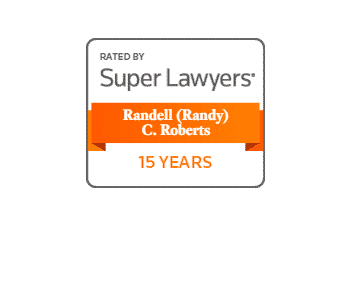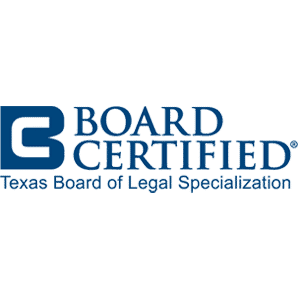Sep 25, 2023 - Personal Injury by Justin Roberts
Over 1.4 million traumatic brain injuries (TBIs) happen every year in the U.S., mostly because of vehicular accidents, falls, or the negligence of others. Those who are at the greatest risk for TBIs include male adolescents, young adults ages 15-24, and seniors over the age of 75.
Additionally, almost half a million people die from TBIs every year. And it is estimated that more than five million Americans suffer from the lingering effects and disabilities of traumatic brain injury to the extent they need assistance with routine activities of daily living.
When you consider how life-changing even a “mild” traumatic brain injury can be, there’s no doubt that victims may be entitled to substantial compensation from a personal injury lawsuit. However, calculating a fair settlement—and convincing an insurance company to pay that settlement—can be extremely challenging. Working with an experienced traumatic brain injury lawyer can help you get the best possible outcome for your brain injury claim.
Definition and Long-Term Impact of TBIs
Traumatic brain injuries encompass a wide range of head injuries caused by blunt force trauma, jolts, or penetrative wounds to the head. They vary in severity, from mild concussions to severe injuries with long-lasting effects.
However, don’t be misled by the word “mild.” TBIs are typically classified as mild, medium, or severe based on the short-term impact and symptoms. However, even mild traumatic brain injuries can cause can lead to significant long-term consequences that extend far beyond the initial injury. Victims often experience a range of physical, cognitive, and emotional challenges that may include memory loss, impaired motor skills, difficulty concentrating, and mood swings. These long-term consequences can impact daily activities, relationships, and the ability to work or enjoy life as before.
Recognizing a TBI
Promptly recognizing the signs of a traumatic brain injury is vital for seeking appropriate medical attention and legal support when needed. TBIs can manifest in a range of symptoms, some of which might not be evident immediately after an accident.
Here are some common TBI symptoms to watch out for:
- Physical Symptoms
- Headaches that worsen or don’t subside
- Nausea or vomiting
- Fatigue and drowsiness
- Sensitivity to light or noise
- Difficulty with balance and coordination
- Cognitive Symptoms
- Confusion and disorientation
- Memory problems, including difficulty recalling recent events
- Slurred speech and trouble finding the right words
- Inability to concentrate or stay focused
- Emotional and Behavioral Changes
- Irritability and mood swings
- Anxiety or depression
- Unusual behavior or personality changes
- Difficulty managing emotions
- Sensory Changes
- Blurred vision or ringing in the ears
- Altered sense of taste or smell
Recognizing a potential TBI in yourself or a loved one involves staying vigilant, especially in the aftermath of an accident or injury. If any of these symptoms are observed, seek medical attention right away. Even seemingly mild symptoms could be indicative of an underlying TBI that requires evaluation by a medical professional.
Once medical needs are addressed, considering legal assistance from professionals experienced in TBIs, such as Roberts & Roberts, can be quite beneficial for securing compensation and ensuring a stable path to recovery.
Assessing Damages in TBI Settlements
Calculating a fair traumatic brain injury settlement requires a comprehensive assessment of many factors. It is not a simple process, and there is no such thing as an “average settlement” for a brain injury.
At Roberts & Roberts, we work closely with medical professionals, financial experts, psychologists, and other experts to develop a thorough assessment of damages. Our commitment is to secure compensation that reflects the full extent of the victim’s physical, emotional, and financial hardships.
Key considerations that influence the determination of a fair settlement for TBIs include:
Medical Expenses and Treatment Costs
TBIs often require extensive medical care, including emergency treatment, hospitalization, diagnostic tests, surgeries, and ongoing therapies. The costs associated with these medical interventions can accumulate rapidly and continue over a lifetime, especially when considering the need for rehabilitation services and specialized treatments. Calculating these medical expenses accurately is crucial for ensuring that victims are adequately compensated for the financial burden they face.
That is why Roberts & Roberts collaborates with medical experts to build a strong case that accounts for the full spectrum of medical expenses associated with TBIs. Our aim is to secure compensation that covers both existing and anticipated future medical costs.
Lost Wages and Reduced Earning Capacity
Victims of TBIs also may experience temporary or permanent disability that affects their ability to work. Lost wages are not only limited to missed work during recovery, but also include future earnings that are compromised due to the injury. For example, many traumatic brain injury victims are able to obtain gainful employment, but in a lower-paying occupation or role than before their head injury.
Determining lost earning capacity requires a careful evaluation of the victim’s profession, skills, and potential career trajectory. We work closely with financial experts to quantify the financial setback caused by the injury, ensuring that victims are compensated fairly for their diminished earning potential.
Pain and Suffering
The physical pain, emotional distress, and mental anguish resulting from a traumatic brain injury can be overwhelming. TBIs can lead to cognitive changes, mood swings, and even psychological disorders. These effects may be permanent and have a drastic impact on relationships with friends and family, ability to enjoy favorite hobbies, and overall quality of life. While these non-economic damages are not as “tangible” as medical bills or lost wages, they are equally valid and deserving of compensation.
Quantifying pain and suffering is a complex process that involves considering the extent of the injury, the impact on daily life, and the psychological toll it takes on the victim.
Roberts & Roberts believes that acknowledging the emotional and mental toll of TBIs is essential in securing a fair settlement. We advocate passionately for our clients, ensuring that their pain and suffering are taken into account in the negotiation process.
Legal Considerations in TBI Settlements
Navigating the legal landscape of traumatic brain injury settlements requires a deep understanding of personal injury law and the intricacies of TBIs. Whether the injury resulted from a car accident, a workplace incident, or another form of negligence, certain legal considerations play key roles in securing a fair settlement for TBI victims:
- Gathering Evidence. Comprehensive medical documentation is essential in establishing the extent of the TBI’s impact. Medical records, diagnostic tests, and expert opinions from neurologists or neuropsychologists provide valuable insights into the severity of the injury and its long-term effects.
- Establishing Liability. Your attorney will need to prove that your TBI was at least primarily the result of someone else’s negligence. In Texas, in order to obtain compensation, you cannot be more than 50% at fault for your brain injury. If it’s determined that you were between 1% and 50% at fault, your personal injury claim damages will be reduced by the same percentage. For example, if you had $1 million in damages, but were 30% at fault for the accident, you could only recover $700,000.
- Dealing With Insurance Adjusters. Insurance companies may attempt to downplay the severity of the TBI or offer inadequate settlements. Skilled negotiation is crucial to ensure that the compensation offered accurately reflects the victim’s damages.
- Demonstrating the Impact. Effective negotiation involves presenting a comprehensive case that highlights not only economic damages but also the emotional and long-term effects of the TBI. This requires strategic communication and a thorough understanding of the victim’s situation.
- Having Experienced Legal Guidance. Working with an experienced personal injury attorney who specializes in TBIs is paramount. They understand the nuances of TBI cases and can provide invaluable insights to navigate the legal process effectively.
- Protecting Your Rights. A personal injury lawyer ensures that your rights are upheld throughout the process and that you’re not taken advantage of by insurance companies or opposing parties. They advocate on your behalf to secure the compensation you deserve.
There can be many intricacies in TBI settlements and the important role legal representation plays. Our team is dedicated to providing TBI victims with the support and guidance needed to navigate this challenging journey. We collaborate with medical experts, gather compelling evidence, and strategically negotiate to ensure that your settlement accurately reflects the full scope of your damages.
Evidence to Support Your Traumatic Brain Injury Case
Given that TBI symptoms can be “self-reported” and not always visible on imaging or testing, insurance adjusters might attempt to downplay the severity of injuries or even deny claims. However, there are effective strategies to overcome these challenges and build a strong case with supporting evidence like:
- Medical Documentation. Secure comprehensive medical records detailing your diagnosis, treatment plan, and any ongoing care requirements. Seek the expertise of neurologists or neuropsychologists who specialize in TBIs to provide objective evaluations.
- Symptom Journals. Maintain a detailed journal documenting your daily experiences and challenges due to TBI symptoms. This provides a valuable record of how the injury affects your life.
- Witness Testimonies. Because TBI victims can’t always speak up for themselves, it’s important to gather testimonies from family members, friends, and other close associates who can speak about how the accident altered the course of the victim’s life.
- Expert Opinions. Consulting medical professionals who specialize in TBIs and can explain the potential long-term impact of the injury can add credibility to your case.
- Functional Assessments. Functional assessments can objectively evaluate your cognitive and physical abilities, providing tangible evidence of the injury’s impact.
- Impact on Daily Functioning. Demonstrate how your TBI has affected your daily routines, work, relationships, and overall quality of life. This can be done through things like witnesses testimonies, or even a “day in the life” video put together by your attorney.
- Financial Records. Maintain records of medical expenses, lost wages, and any financial setbacks due to the injury.
- Consistent Communication. Maintain consistent communication with your medical providers and adhere to recommended treatments to show your commitment to recovery.
If this all sounds overwhelming, don’t worry! An experienced attorney can do much of the work on your behalf, and provide appropriate advice and guidance along the way.
At Roberts & Roberts, we understand the challenges of TBI cases and can provide you with the support and legal expertise needed to secure the compensation you deserve.
Advocating for Your TBI Recovery with Roberts & Roberts
Navigating the intricate landscape of traumatic brain injury settlements requires a dedicated legal ally who understands the complexities of both the legal system and the injuries themselves. As staunch advocates for TBI victims, Roberts & Roberts offers comprehensive legal support tailored to your unique circumstances.
With our unwavering commitment to justice and fair compensation, we ensure that your voice is heard and your rights protected throughout the process. Our experienced team combines legal expertise with deep empathy, recognizing the challenges TBI victims and their families face on their journey to recovery. We provide:
- Comprehensive Case Evaluation. We meticulously assess every detail of your case, from medical records to expert evaluations. This holistic approach allows us to present a compelling case that accurately reflects the true impact of the TBI.
- Expert Negotiation. Our negotiation strategies are rooted in a deep understanding of TBIs and their effects. We leverage our experience to negotiate with insurance companies and opposing parties to secure the best possible outcome for you.
- Fierce Representation. With Roberts & Roberts by your side, you have a dedicated team that fights for your rights and champions your cause. We ensure that you are treated fairly and with respect throughout the legal process.
- Compassionate Support. We understand the emotional and physical toll that TBIs can take. Our team provides not only legal guidance but also compassionate support, empowering you to focus on your recovery while we handle the legal complexities.
Your journey to a fair TBI settlement is not one you have to take alone. Our personal injury attorneys are here to stand beside you, providing steadfast support, expert representation, and a commitment to securing the compensation you need to rebuild your life.
If you or a loved one has suffered a TBI due to negligence, contact Roberts & Roberts today for a free consultation online or by calling 800-248-6000. Let us be your advocates in the pursuit of justice and fair compensation.
Justin is an attorney at Roberts & Roberts and focuses his practice on mass tort litigation, where he specializes in helping individuals who are harmed by recalled or unsafe pharmaceutical drugs and medical devices. He has earned recognition as a “Top 40 Under 40” Trial Lawyer by the National Trial Lawyers. Prior to joining Roberts & Roberts, Justin served as an attorney in all three branches of Texas’s state government, including as a Briefing Attorney on the Texas Supreme Court. He also represented electric and natural gas utilities in complex regulatory proceedings before the Public Utility Commission of Texas and the Railroad Commission of Texas. Justin is a published author in the St. Mary’s Law Journal.









